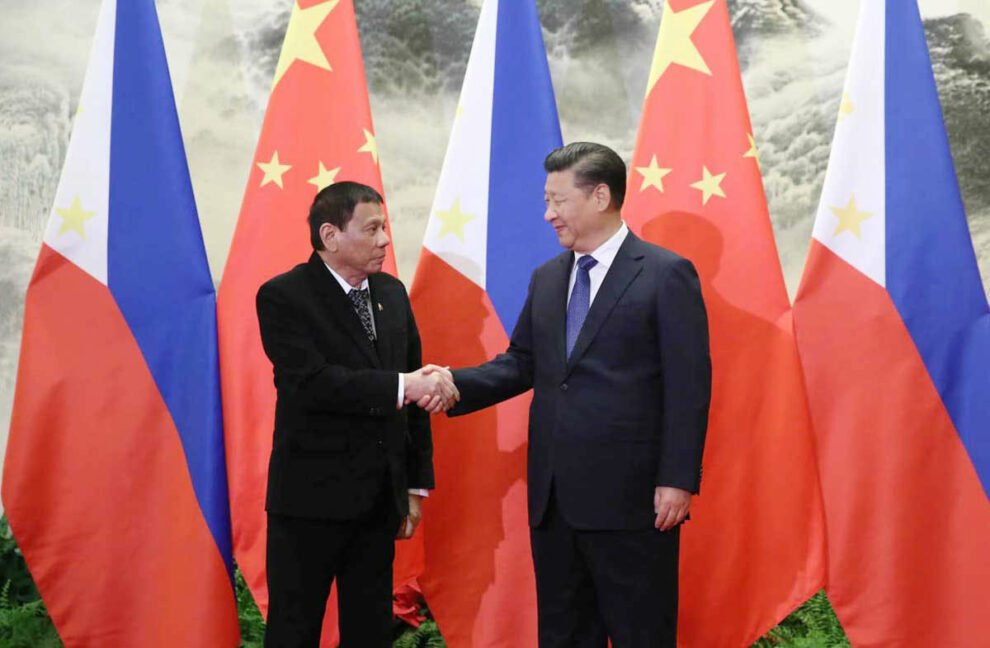China and the Philippines are currently experiencing another troubled moment caused by persistent territorial disputes and maritime jurisdictional conflicts in the West Philippine Sea (WPS), in particular, and the whole of South China Sea (SCS), in general.
This challenging situation is just a moment that will soon pass for the two nations to enjoy better days. Philippines-China relations always experience troubled moments in their peaceful history and they always overcome difficult times in order to celebrate the golden age.
Filipinos are now quarreling because of different approaches on how to deal with China and with the United States, especially in the context of the WPS issue. Filipinos are being divided as either pro-China or pro-US, which is a very simplistic if not ignorant way to grapple with the complex situation in the SCS/WPS.
Framing the SCS/WPS in the context of US-China major power rivalry is anathema to the peaceful management of territorial disputes, which can only be effectively done through direct consultations and negotiated political solutions.
Engaging China or the US does not make one pro-China or pro-US. In fact, it is more pro-Filipino to engage both powers in order to get the best of both worlds for the advancement of Philippine national interest. It is more pro-Filipino for the Philippines to facilitate the improvement of US-China relations because international peace and security rests largely on the nature of bilateral ties between these two great powers.
The world now faces two different models of global order presented by China and the US. The Philippines is at the crossroad of these two competing models. The choice that the Philippines will take can push the US and China to the brink of war or can bring both powers to the door of peace.
Increased military activities cannot settle territorial disputes in the WPS. In fact, there is a need for the de-militarization of the WPS and whole of the SCS in order to pursue functional cooperation of pragmatic nature as mandated by the 1982 United Nations Convention on the Law of the Sea (UNCLOS).
Based on existing international practices, there are many peaceful ways to settle territorial disputes. It is imperative to revisit these peaceful ways to address the WPS/SCS conflicts.
Can the Philippines peacefully settle territorial disputes with China in the WPS?
Answering this question need to cite the work of M. Taylor Fravel, an American political scientist at the Massachusetts Institute of Technology (MIT). In his study based on his doctoral dissertation, Fravel undercores that China has been involved in at least 23 difficult territorial disputes since 1949.
At present, only six of these territorial disputes persist. These are the Taiwan issue, the border dispute with India, the border conflict with Bhutan and the three island group disputes in the Paracels, the Spratlys, and the Scarborough Shoal. Fravel discovered that China over the past sixty years was more likely to compromise in these conflicts with neighbors and less likely to use force than many Western scholars have feared.
According to Fravel, China’s territorial disputes with neighbors have been effectively resolved. These include peaceful settlement of territorial disputes with North Korea, Russia, Mongolia, Kazakhstan, Kyrgyzstan, Tajikistan, Afghanistan, Pakistan, Nepal, Myanmar and Laos as well as land border conflicts with Vietnam including the White Dragon Tail Island dispute in the Gulf of Tonkin.
China has settled territorial disputes over Hong Kong (with Great Britain) and Macao (with Portugal) not through the use of coercion, aggression, or military force but by patiently negotiating for the return of these Chinese territories. China waited 156 years to get back Hong Kong from Great Britain and 442 years to regain Macau from Portugal.
China has a bag full of patience to peacefully settle territorial disputes. China has taught the world that in the peaceful settlement of territorial disputes, patience is the main requirement.
Fravel observed that China’ resolution of the other disputes involved difficult compromise agreements in which China received only a miniscule part of the contested territory. In major cases, China offered generous compromises giving in more than 50 percent of the disputed land in favor of the neighbors.
Those are scientific findings from an American and not from a Chinese scholar. By citing an American source that is well respected and accepted by the international community of experts and scientists, it is therefore very unfair to be labeled as pro-China by highlighting China’s exemplary practices in the peaceful settlement of territorial disputes with neighbors.
In the Philippines, it is currently popular to be anti-China because of the WPS issue. But as Albert Einstein said, “what is popular is not always right”.
It is counterproductive to use labels like anti-China or pro-US in the context of the SCS/WPS disputes. It is more pro-Filipino to believe that sustaining friendship and strengthening peaceful co-existence with the US and China are essential for the advancement of Filipino national interests.
Source : Eurasiareview










